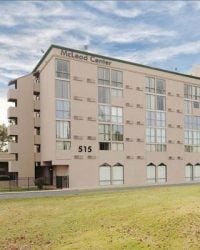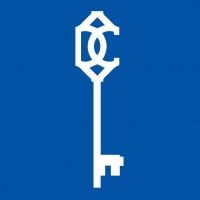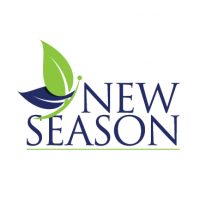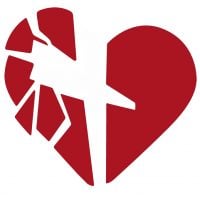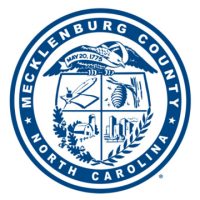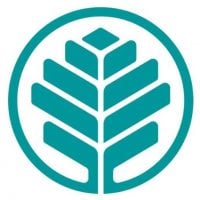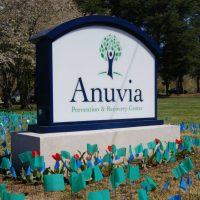McLeod Addictive Disease Center - Outpatient
Drug Rehab Center in Charlotte, North Carolina
McLeod Addictive Disease Center in Charlotte, North Carolina provides personalized addiction treatment services, including evidence-based therapies and recovery modalities, to individuals dealing with various forms of addiction, and accepts many types of private health insurance.
About This North Carolina Facility
McLeod Addictive Disease Center - Outpatient is a renowned addiction treatment facility located in Charlotte, North Carolina. They hold the prestigious certifications from CARF (Commission on Accreditation of Rehabilitation Facilities) and SAMHSA (Substance Abuse and Mental Health Services Administration), which reflect their commitment to maintaining high standards of care. McLeod Addictive Disease Center - Outpatient specializes in providing treatment for alcoholism, opioid addiction, substance abuse, and drug addiction. They offer a range of services, including aftercare support, detox programs, inpatient and outpatient levels of care, drug rehab, and intensive outpatient programs. With their comprehensive approach to treatment, McLeod Addictive Disease Center - Outpatient aims to support individuals in their journey to recovery and help them regain control over their lives.
In addition to being accredited by CARF and SAMHSA, McLeod Addictive Disease Center - Outpatient offers a variety of services to address addiction and substance abuse. They provide aftercare support to help individuals maintain sobriety and prevent relapse. Their detox programs offer a safe and supportive environment for individuals to rid their bodies of harmful substances. McLeod Addictive Disease Center - Outpatient also offers inpatient and outpatient levels of care, allowing individuals to choose the program that best suits their needs and circumstances. They have a dedicated drug rehab program that focuses on helping individuals overcome drug addiction and develop healthy coping mechanisms. Furthermore, their intensive outpatient programs provide structured therapy and counseling sessions while allowing individuals to continue with their daily lives. Through their comprehensive range of services, McLeod Addictive Disease Center - Outpatient strives to provide effective treatment and support for those struggling with addiction and substance abuse.
Genders
Ages
Modality
Additional
Accreditations
SAMHSA

CARF
The Commission on Accreditation of Rehabilitation Facilities (CARF) is a non-profit organization that specifically accredits rehab organizations. Founded in 1966, CARF's, mission is to help service providers like rehab facilities maintain high standards of care.
Conditions and Issues Treated
Substance abuse typically leads to addiction, which requires specialized treatment programs at McLeod Addictive Disease Center - Outpatient to address. Many people benefit from inpatient drug rehabilitation, which includes inpatient acute care and residential rehabilitation. Other levels of care include intensive outpatient therapy, individual counseling, and support groups. Family therapy is also an essential part of treatment for substance abuse.
A combination of treatments is often needed to treat drug abuse issues effectively. In the case of drug abuse, there is no easy answer or one-size-fits-all cure.
Opioid addiction treatment helps people addicted to opioids in North Carolina curb their drug use. The selection of a treatment setting depends on the severity of the addiction. Mild cases are usually treated in outpatient facilities; severe cases need hospitalization or treatment in a residential facility. Doctors use medicines along with counseling and behavioral therapies to treat the addiction. The treatment includes medication, counseling and therapy. It can also include group counseling, individual counseling and family counseling.
Levels of Care Offered at McLeod Addictive Disease Center - Outpatient
This center offers a variety of custom treatment tailored to individual recovery. Currently available are Aftercare Support, Detox, Drug Rehab, Inpatient, Intensive Outpatient, Outpatient, with additional therapies available as listed below.
Detox is the stage of recovery where the drugs or alcohol are entirely removed from your body. There are two different ways to detox, with medications and without. For many drugs and alcohol, the acute phase of detox can be completed in a number of days.
Inpatient rehab means living at the Charlotte, NC facility while all aspects of an addiction or co-occurring disorder get addressed. This helps limit the distractions and increase the focus on recovery. Typical inpatient rehab stays are approximately one month long.
McLeod Addictive Disease Center - Outpatient offers an Intensive Outpatient Program is for those who need intensive care but prefer to spend the majority of their time in the comfort of their own home. The rehabilitation services differ in length and intensity. They are customized to meet the needs of the patient.
Outpatient treatment plans cover diagnosis, detoxification, management, and counseling. They are a popular option for those who have graduated from inpatient facilities. Services in North Carolina include medication-assisted treatment (MAT) and individual and group therapy.
After treatment, addiction treatment can be frightening for newly sober people. Aftercare support provided by McLeod Addictive Disease Center - Outpatient is designed to give resources and help on a continued basis. It can involve finding housing in and around North Carolina, setting up 12-step meeting groups, continued medical monitoring, and counseling.
Therapies & Programs
Family therapy is a set of therapeutic approaches that assumes that the entire family is a system. It utilizes the strengths and resources of the family to help the patient refrain from resorting to substance abuse. The impact of substance abuse is not just on the patient but on the entire family. Family therapy ensures that the patient gets adequate support from the family members after the treatment making the recovery process sustainable
- Family therapy guides all the members of the family to help the patient.
- It helps to repair relationships and improve communication between family members.
- It helps to keep the patient engaged and motivated throughout the treatment.
Group therapy is an important tool in recovery. Finding a peer group in Charlotte, NC and others who relate to your situation is a fundamental tool for recovery at McLeod Addictive Disease Center - Outpatient. Addiction tends to lead to isolation and feelings of uniqueness. The accountability and friendship that is found in group therapy can be more effective than any single other treatment approach. This is generally introduced early in recovery and is recommended as a lifetime treatment habit.
Trauma therapy is a way of addressing trauma while in a safe situation in order to heal. This may involve McLeod Addictive Disease Center - Outpatient managing individual or group counseling or both. Other forms of therapy have been proven to assist in healing past traumas.
A type of cognitive-behavioral therapy is Dialectical Behavioral Therapy. It is intended for those who are vulnerable to self-harm and suicidal thoughts. McLeod Addictive Disease Center - Outpatient aims to help patients understand the connection between their feelings, emotions, and behaviors and provide them with the tools to make a difference in Charlotte, NC. For those whose addictions and habits originate from severe mental health problems, it is beneficial.
Negative feelings are common in substance abuse disorders. If not recognized, they can cause co-occurring disorders. CBT involves strategies that help to change the thinking and behavioral pattern. It can be administered as a monotherapy as well as a part of combination therapy.
Rehabilitation is not just limited to bringing an individual out of addiction and achieving sobriety. It is considered complete only when an individual starts leading a normal and balanced life. Life skill therapy focuses on the various skills that help an individual to lead a normal life. Patients often do not take care of themselves, struggle professionally, and withdraw from social interaction due to addiction’s physical and emotional disturbances.
Life skills therapy helps people in North Carolina improve various personal, professional, and social skills such as cooking healthy meals, maintaining proper hygiene, budgeting, decision-making, time management, regulation of emotions, and effectively resolving interpersonal conflicts.
The first three steps depend on the patient, so they are more specific and situational. The succeeding four steps center on practical issues brought on by substance abuse. Steps 8 and 9 deal with the social and emotional repercussions of addiction, encouraging patients to make amends to people they have wronged. These are followed by two steps revolving around the further exploration and reinforcement of Steps 1 to 9.
The last step requires an individual to extend a helping hand to people who are still in the early stages of their recovery.
Payment Options Accepted
For specific insurance or payment methods please contact us.
Is your insurance accepted?
Ask an expert, call (888) 674-0062
McLeod Addictive Disease Center Associated Centers
Discover treatment facilities under the same provider.
- McLeod Addictive Disease Center - Hickory in Hickory, NC
- McLeod Addictive Disease Center - Monroe in Monroe, NC
- McLeod Addictive Disease Center - Marion in Marion, NC
- McLeod Addictive Disease Center - Monroe in Monroe, NC
- McLeod Addictive Disease Center - Statesville in Statesville, NC
Learn More About McLeod Addictive Disease Center Centers
Additional Details
Specifics, location, and helpful extra information.
Charlotte, North Carolina 28217 Phone Number(704) 332-9001 Meta DetailsUpdated November 25, 2023
Staff Verified
Patient Reviews
There are no reviews yet. Be the first one to write one.
Charlotte, North Carolina Addiction Information
North Carolina ranks 29th in the nation for overall substance abuse. Many of the drugs abused in the state are illicit, and many of these are opioids. Prescription opioids are readily available due to the high rates of medical workers prescribing them. The number of prescriptions has increased tenfold since the 1980's. Opioid overdoses are the most common type of death in North Carolina.
4.3% of Charlotte residents aged 12 and older reported using illicit drugs. There are over 60,000 people addicted to drugs in Charlotte, North Carolina. This harms the community and contributes to crime and other social problems. Medication-assisted treatment is often used in conjunction with other forms of treatment, such as therapy, and can be very successful in helping someone overcome addiction.
Treatment in Nearby Cities
- Ahoskie, NC (231.3 mi.)
- Jackson, NC (210.9 mi.)
- Frisco, NC (296.5 mi.)
- Mocksville, NC (51.5 mi.)
- Swannanoa, NC (90.1 mi.)
Centers near McLeod Addictive Disease Center - Outpatient
The facility name, logo and brand are the property and registered trademarks of McLeod Addictive Disease Center - Outpatient, and are being used for identification and informational purposes only. Use of these names, logos and brands shall not imply endorsement. RehabNow.org is not affiliated with or sponsored by McLeod Addictive Disease Center - Outpatient.




